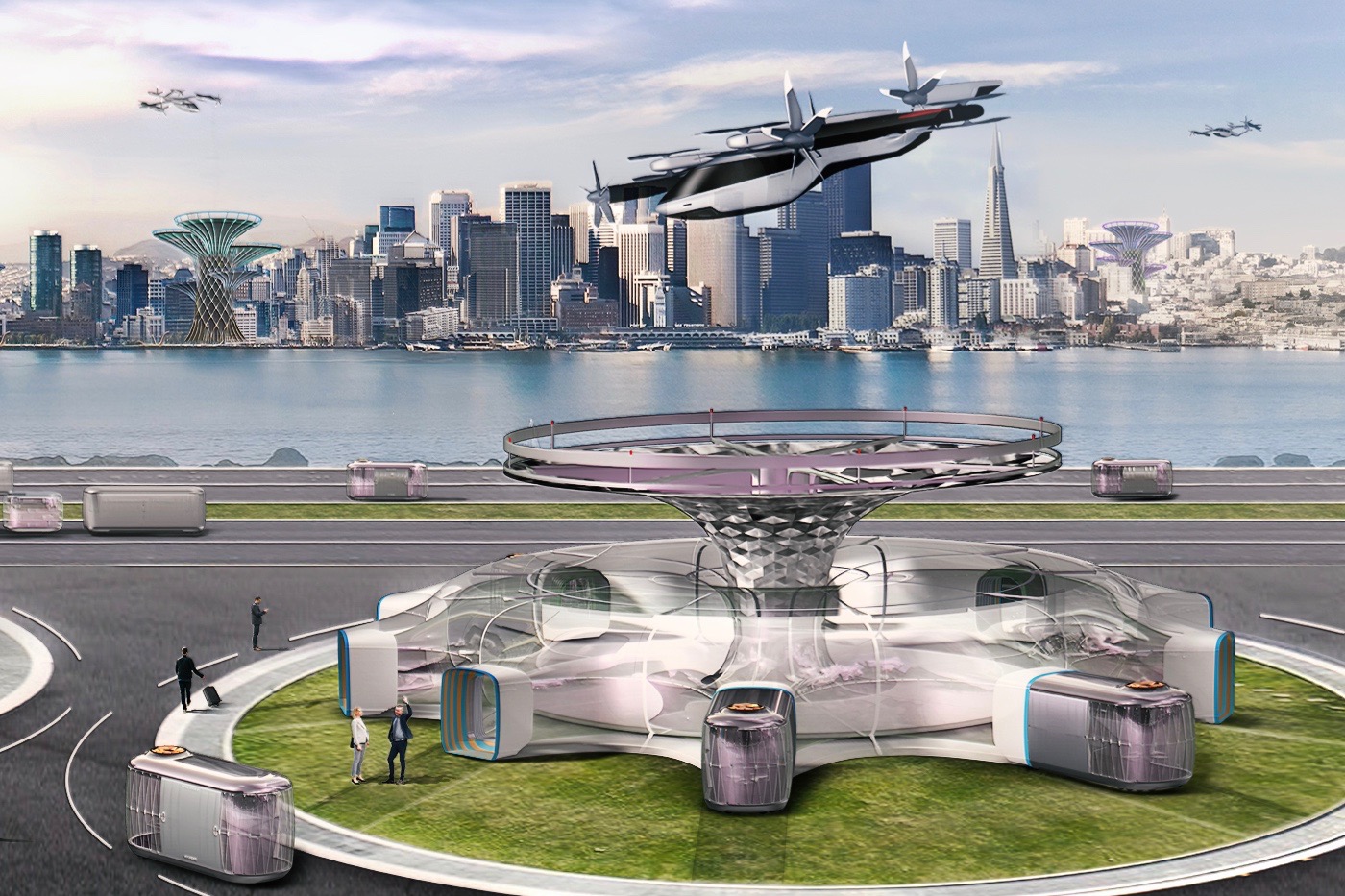
Hyundai recently established its own flying taxi division, becoming the latest in a long line of companies to take a shot at this sci-fi technology. While it’s unclear when the first Hyundai flying taxi will go into production, the company will unveil a concept version at CES 2020.
Hyundai hasn’t revealed many details of the flying taxi, which it refers to as a “personal air vehicle.” The vehicle will be shown alongside an autonomous concept car Hyundai calls a “purpose built vehicle.” This concept vehicle will have a customizable design, giving it a variety of possible uses, Hyundai claims. Both vehicles are designed to operate out of a transportation “hub” that could be built in city centers, Hyundai claims.
Flying taxis will free up space on city streets and “give back quality time to city commuters,” according to Hyundai. The general consensus among the numerous companies developing flying cars is that they will be used in airborne ridesharing services, providing a more efficient way to get around cities. Uber, for example, plans to expand from terrestrial ridesharing to flying taxis, with pilot programs planned in Los Angeles and Dallas.
Hyundai hasn’t offered much information on how its flying taxi program will differ from competitors, or where it plans to deploy its aircraft first. The company did name NASA veteran Dr. Jaiwon Shin as head of the program. Shin previously oversaw various research projects at the space agency. Hyundai believes flying taxis will become a $1.5 trillion business within the next 20 years.
Hailing a flying taxi instead of an ordinary sedan may sound cool, but making that vision a reality could prove difficult. Flying taxi service demands a very different kind of aircraft, and current helicopters have shown that taking off and landing vertically in cities is not without safety challenges. Besides the aircraft themselves, flying taxi services will require a complex air traffic control system to manage potentially hundreds of vehicles flying above city streets.
This won’t be the first time Hyundai has brought something other than a normal car to CES. For the 2019 edition of the Las Vegas tech extravaganza, the automaker showed off a walking vehicle called the Elevate. Hyundai said the Elevate, which moved around on robotic legs, could allow first responders to traverse rough terrain. But the Elevate was primarily designed to get attention at CES. The company seems more serious about its flying taxi project.
Editors' Recommendations
- The Sony Honda Afeela car is peak CES, and I’m totally here for it
- BMW shows off an electric car with color-changing paint at CES 2022
- This drone-like ‘flying car’ has just taken a step toward commercialization
- Watch this flying car make history with first intercity flight
- This 18-rotor passenger drone could fly at the Paris Olympics


